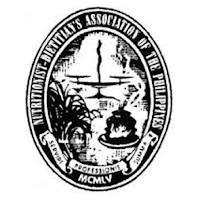Manila, Philippines, 18 January 2017 – An estimated seven million children across the Philippines currently
experience hunger and malnutrition, painting a bleak picture amid rosy economic
growth figures. This public health
problem is largely driven by inadequate access to nutritious food, lack of nutrition
education, and poor health and sanitation services.
These challenges were
unearthed in a forum on malnutrition at Green Sun in Makati City, hosted by the
United for Healthier Kids (U4HK) advocacy led by Nestlé Philippines. The forum
featured Senator Grace Poe, Director Mario Capanzana of the Food and Nutrition
Research Institute, and Dr. Adela Jamorabo-Ruiz of the Nutritionist-Dieticians
Association of the Philippines, who all shed light on the multiple facets of
malnutrition. Moreover, the panelists highlighted the need for sustained
interventions in providing access to food and strengthening nutrition education
among kids, their parents, teachers, and community leaders.
The forum panelists further pointed out the need
for concerted multi-sectoral efforts to ensure that no Filipino child goes
hungry and that they all get adequate amounts of nutrients.
In her keynote speech, Senator Poe stated, “A
generation of Filipino children are already hindered from reaching their full
potential if they are hungry and deprived of the nutrition they need to learn
in school and stay active. We must collectively work together to take care of
our children and ensure that they are able to take advantage of the
opportunities presented to them.”
The forum on malnutrition was immediately followed by the unveiling of the U4HK portal, a repository site designed to inspire and move young Filipinos to share, donate or volunteer for programs of non-government organizations addressing malnutrition in different communities throughout the Philippines.
“For the Philippines to combat malnutrition and
achieve its full potential, we need to adopt a more systemic approach to
reducing hunger and malnutrition. We need to bring together organizations with
expertise in various subjects, from access to food, nutrition education, water,
sanitation, and hygiene, to nutrition in disaster. We need to harness the
energy and ideas of young people, who have demonstrated their will and capacity
to shape the Philippines into a country whose people are able to lead
prosperous and healthy lives,” said Nestlé Philippines Chairman and CEO Jacques
Reber.
The U4HK portal will
include a malnutrition heat map that shows the severity of the problem across
the Philippines. Clicking on a particular region will feature the percentage of
malnourished kids in the area, along with the activities that are being done to
fight malnutrition. Housed on the volunteer page would also be a list of
initiatives that the U4HK partners plan to implement over the next couple of
months as well as details on how people can donate, volunteer, or share.
Meanwhile, Nestlé Philippines Senior
Vice-President for Communication, Marketing, and Innovation Paolo Mercado
stated, “We hope to make it easier for the
Filipino youth to not only learn more about the problem of malnutrition, but to
also inspire them to take action by sharing information, donating money or
volunteering their time to activities that provide direct interventions to
malnourished Filipino children.”
Helping spur action among young Filipinos are
Nestle’s brand ambassadors, who shared their insights on the challenge of
malnutrition. Actor Gerald Anderson immersed himself by consuming meals that
are most common among Filipino families, such as boiled saba. Such dishes are
the primary sources of nutrients of Filipino families.
“Everybody knows that malnutrition among
children is a serious problem, but people to tend to put it aside because it
has persisted for the longest time. Sa
atin kasi, basta nakakakain at nabubusog, ok na ‘yon. Hindi natin iniisip kung
sapat ba ang nutrisyong nakukuha natin mula sa ating kinakain. If we show
everyone the real effect of malnutrition, doon
magbubukas ang mga puso’t isipan ng mga tao to do something about the
problem at mas marami pa tayong mga batang
matutulungan na magkaroon ng mas magandang kinabukasan. There is so much we
can do to help them,” said TV host and volleyball player Gretchen Ho.
U4HK also recognizes the power of the private
sector in helping address malnutrition.
“A challenge as big as malnutrition is not the
responsibility of just one sector of society. Businesses have the resources and
technical knowledge to help address malnutrition,” added Mercado. “The
possibilities for interventions from the private sector are vast—from employee
engagement and collaboration with communities to reimagining more inclusive
supply chains and supporting technological innovations to address access to
food and the quality of food on the dining tables of Filipino families.
Launched in 2014, U4HK is a multi-sectorial
advocacy focused on creating public awareness to drive action toward addressing
malnutrition among elementary schoolkids.The advocacy tackles the need to provide these children with adequate
access to nutritious food, nutrition education, nutrition in distaster, safe
drinking water and sanitation, and proper hygiene.
The event was capped
with a video message from Vice-President Leni Robredo, who shared her
confidence on what the country can achieve if all sectors of society work
together to address malnutrition.
“We believe that the
first freedom that has to be won in our country is the freedom from hunger. As
part of our advocacy, we have been focusing on maternal, neo-natal, and child
health and nutrition, especially in the prevention of stunting. Ultimately, we
must focus on the nutrition of our children, for they are the key to our
future. This would be a good chance for you to make the first step in making
our country better for all Filipinos,” Vice-President Robredo stated.
***

















.jpg)
Comments
Post a Comment